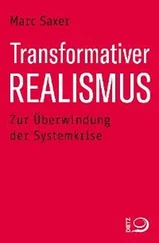Mark Fisher - Capitalist Realism - Is There No Alternative?
Здесь есть возможность читать онлайн «Mark Fisher - Capitalist Realism - Is There No Alternative?» весь текст электронной книги совершенно бесплатно (целиком полную версию без сокращений). В некоторых случаях можно слушать аудио, скачать через торрент в формате fb2 и присутствует краткое содержание. Жанр: Старинная литература, на английском языке. Описание произведения, (предисловие) а так же отзывы посетителей доступны на портале библиотеки ЛибКат.
- Название:Capitalist Realism: Is There No Alternative?
- Автор:
- Жанр:
- Год:неизвестен
- ISBN:нет данных
- Рейтинг книги:4 / 5. Голосов: 1
-
Избранное:Добавить в избранное
- Отзывы:
-
Ваша оценка:
- 80
- 1
- 2
- 3
- 4
- 5
Capitalist Realism: Is There No Alternative?: краткое содержание, описание и аннотация
Предлагаем к чтению аннотацию, описание, краткое содержание или предисловие (зависит от того, что написал сам автор книги «Capitalist Realism: Is There No Alternative?»). Если вы не нашли необходимую информацию о книге — напишите в комментариях, мы постараемся отыскать её.
Capitalist Realism: Is There No Alternative? — читать онлайн бесплатно полную книгу (весь текст) целиком
Ниже представлен текст книги, разбитый по страницам. Система сохранения места последней прочитанной страницы, позволяет с удобством читать онлайн бесплатно книгу «Capitalist Realism: Is There No Alternative?», без необходимости каждый раз заново искать на чём Вы остановились. Поставьте закладку, и сможете в любой момент перейти на страницу, на которой закончили чтение.
Интервал:
Закладка:
At this point, it is perhaps worth introducing an elementary theoretical distinction from Lacanian psychoanalysis which Zizek has done so much to give contemporary currency: the difference between the Real and reality. As Alenka Zupancic explains, psychoanalysis's positing of a reality principle invites us to be suspicious of any reality that presents itself as natural. 'The reality principle', Zupancic writes,
is not some kind of natural way associated with how things are ... The reality principle itself is ideologically mediated; one could even claim that it constitutes the highest form of ideology, the ideology that presents itself as empirical fact (or biological, economic... ) necessity (and that we tend to
17
perceive as non-ideological). It is precisely here that we should be most alert to the functioning of ideology.
For Lacan, the Real is what any 'reality' must suppress; indeed, reality constitutes itself through just this repression. The Real is an unrepresentable X, a traumatic void that can only be glimpsed in the fractures and inconsistencies in the field of apparent reality. So one strategy against capitalist realism could involve invoking the Real(s) underlying the reality that capitalism presents to us.
Environmental catastrophe is one such Real. At one level, to be sure, it might look as if Green issues are very far from being 'unrepresentable voids' for capitalist culture. Climate change and the threat of resource-depletion are not being repressed so much as incorporated into advertising and marketing. What this treatment of environmental catastrophe illustrates is the fantasy structure on which capitalist realism depends: a presupposition that resources are infinite, that the earth itself is merely a husk which capital can at a certain point slough off like a used skin, and that any problem can be solved by the market (In the end, Wall-E presents a version of this fantasy -the idea that the infinite expansion of capital is possible, that capital can proliferate without labor -on the off world ship, Axiom, all labor is performed by robots; that the burning up of Earth's resources is only a temporary glitch, and that, after a suitable period of recovery, capital can terra form the planet and recolonize it). Yet environmental catastrophe features in late capitalist culture only as a kind of simulacra, its real implications for capitalism too traumatic to be assimilated into the system. The significance of Green critiques is that they suggest that, far from being the only viable political-economic system, capitalism is in fact primed to destroy the entire human environment. The relationship between capitalism and eco-disaster is neither coincidental nor accidental: capital's 'need of a constantly expanding market', its 'growth fetish', mean that capitalism is by its very nature opposed to any notion of sustainability.
But Green issues are already a contested zone, already a site where politicization is being fought for. In what follows, I want to stress two other aporias in capitalist realism, which are not yet politicized to anything like the same degree. The first is mental health. Mental health, in fact, is a paradigm case of how capitalist realism operates. Capitalist realism insists on treating mental health as if it were a natural fact, like weather (but, then again, weather is no longer a natural fact so much as a politicaleconomic effect). In the 1960s and 1970s, radical theory and politics (Laing, Foucault, Deleuze and Guattari, etc.) coalesced around extreme mental conditions such as schizophrenia, arguing, for instance, that madness was not a natural, but a political, category. But what is needed now is a politicization of much more common disorders. Indeed, it is their very commonness which is the issue: in Britain, depression is now the condition that is most treated by the NHS. In his book The Selfish Capitalist, Oliver James has convincingly posited a correlation between rising rates of mental distress and the neoliberal mode of capitalism practiced in countries like Britain, the USA and Australia. In line with James's claims, I want to argue that it is necessary to reframe the growing problem of stress (and distress) in capitalist societies. Instead of treating it as incumbent on individuals to resolve their own psychological distress, instead, that is, of accepting the vast privatization of stress that has taken place over the last thirty years, we need to ask: how has it become acceptable that so many people, and especially so many young people, are ill? The 'mental health plague' in capitalist societies would suggest that, instead of being the only social system that works, capitalism is inherently dysfunctional, and that the cost of it appearing to work is very high.
The other phenomenon I want to highlight is bureaucracy. In making their case against socialism, neoliberal ideologues often
19
excoriated the top-down bureaucracy which supposedly led to institutional sclerosis and inefficiency in command economies. With the triumph of neoliberalism, bureaucracy was supposed to have been made obsolete; a relic of an unlamented Stalinist past. Yet this is at odds with the experiences of most people working and living in late capitalism, for whom bureaucracy remains very much a part of everyday life. Instead of disappearing, bureaucracy has changed its form; and this new, decentralized, form has allowed it to proliferate. The persistence of bureaucracy in late capitalism does not in itself indicate that capitalism does not work -rather, what it suggests is that the way in which capitalism does actually work is very different from the picture presented by capitalist realism.
In part, I have chosen to focus on mental health problems and bureaucracy because they both feature heavily in an area of culture which has becoming increasingly dominated by the imperatives of capitalist realism: education. Through most of the current decade, I worked as a lecturer in a Further Education college, and in what follows, I will draw extensively on my experiences there. In Britain, Further Education colleges used to be places which students, often from working class backgrounds, were drawn to if they wanted an alternative to more formal state educational institutions. Ever since Further Education colleges were removed from local authority control in the early 1990s, they have become subject both to 'market' pressures and to government-imposed targets. They have been at the vanguard of changes that would be rolled out through the rest of the education system and public services -a kind of lab in which neoliberal 'reforms' of education have been trialed, and as such, they are the perfect place to begin an analysis of the effects of capitalist realism.
Reflexive impotence, immobilization and liberal communism
By contrast with their forebears in the 1960s and 1970s, British students today appear to be politically disengaged. While French students can still be found on the streets protesting against neoliberalism, British students, whose situation is incomparably worse, seem resigned to their fate. But this, I want to argue, is a matter not of apathy, nor of cynicism, but of reflexive impotence. They know things are bad, but more than that, they know they can't do anything about it. But that 'knowledge', that reflexivity, is not a passive observation of an already existing state of affairs. It is a self-fulfilling prophecy.
Reflexive impotence amounts to an unstated worldview amongst the British young, and it has its correlate in widespread pathologies. Many of the teenagers I worked with had mental health problems or learning difficulties. Depression is endemic. It is the condition most dealt with by the National Health Service, and is afflicting people at increasingly younger ages. The number of students who have some variant of dyslexia is astonishing. It is not an exaggeration to say that being a teenager in late capitalist Britain is now close to being reclassified as a sickness. This pathologization already forecloses any possibility of politicization. By privatizing these problems -treating them as if they were caused only by chemical imbalances in the individual's neurology and/or by their family background -any question of social systemic causation is ruled out.
Читать дальшеИнтервал:
Закладка:
Похожие книги на «Capitalist Realism: Is There No Alternative?»
Представляем Вашему вниманию похожие книги на «Capitalist Realism: Is There No Alternative?» списком для выбора. Мы отобрали схожую по названию и смыслу литературу в надежде предоставить читателям больше вариантов отыскать новые, интересные, ещё непрочитанные произведения.
Обсуждение, отзывы о книге «Capitalist Realism: Is There No Alternative?» и просто собственные мнения читателей. Оставьте ваши комментарии, напишите, что Вы думаете о произведении, его смысле или главных героях. Укажите что конкретно понравилось, а что нет, и почему Вы так считаете.












